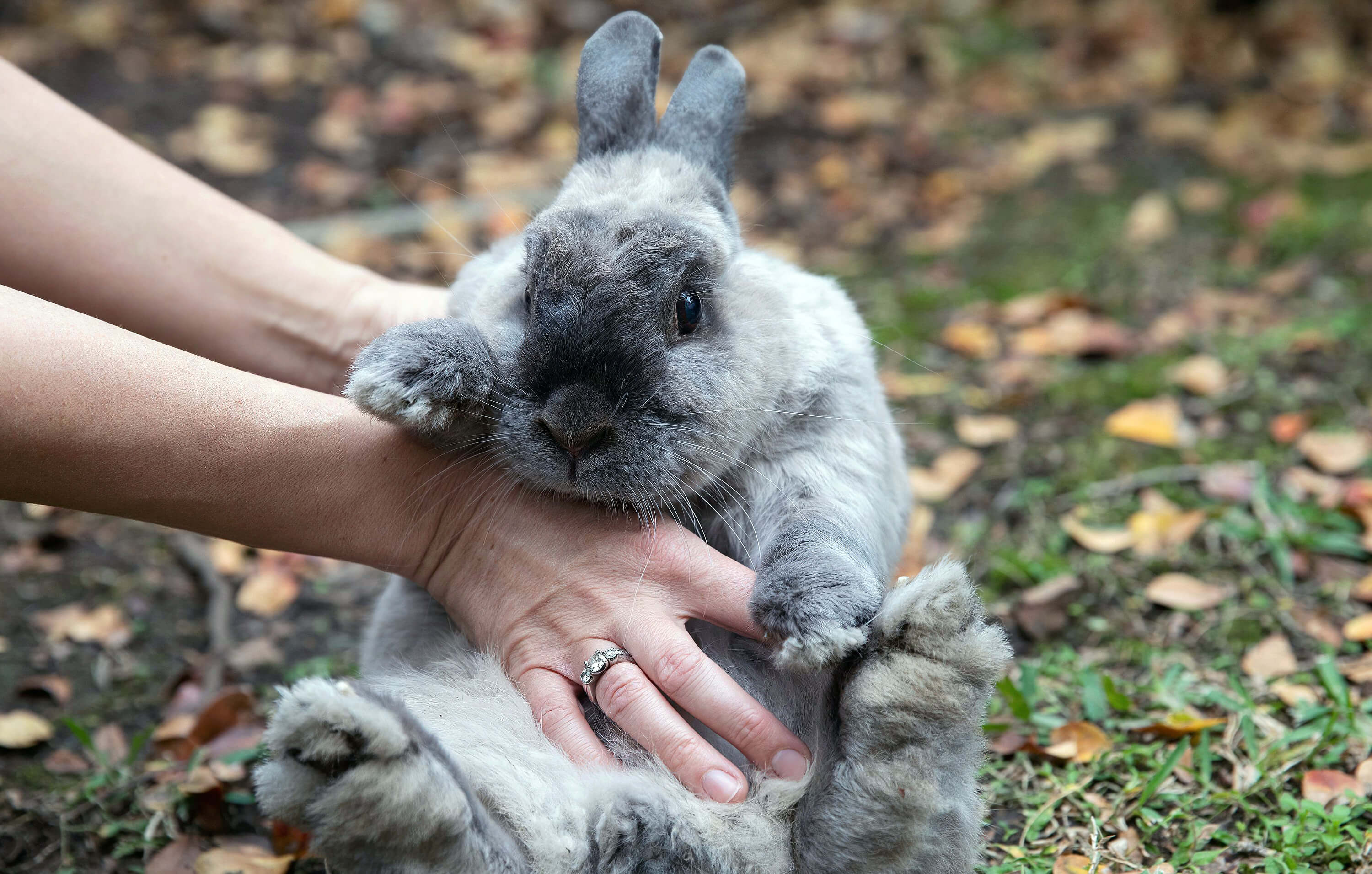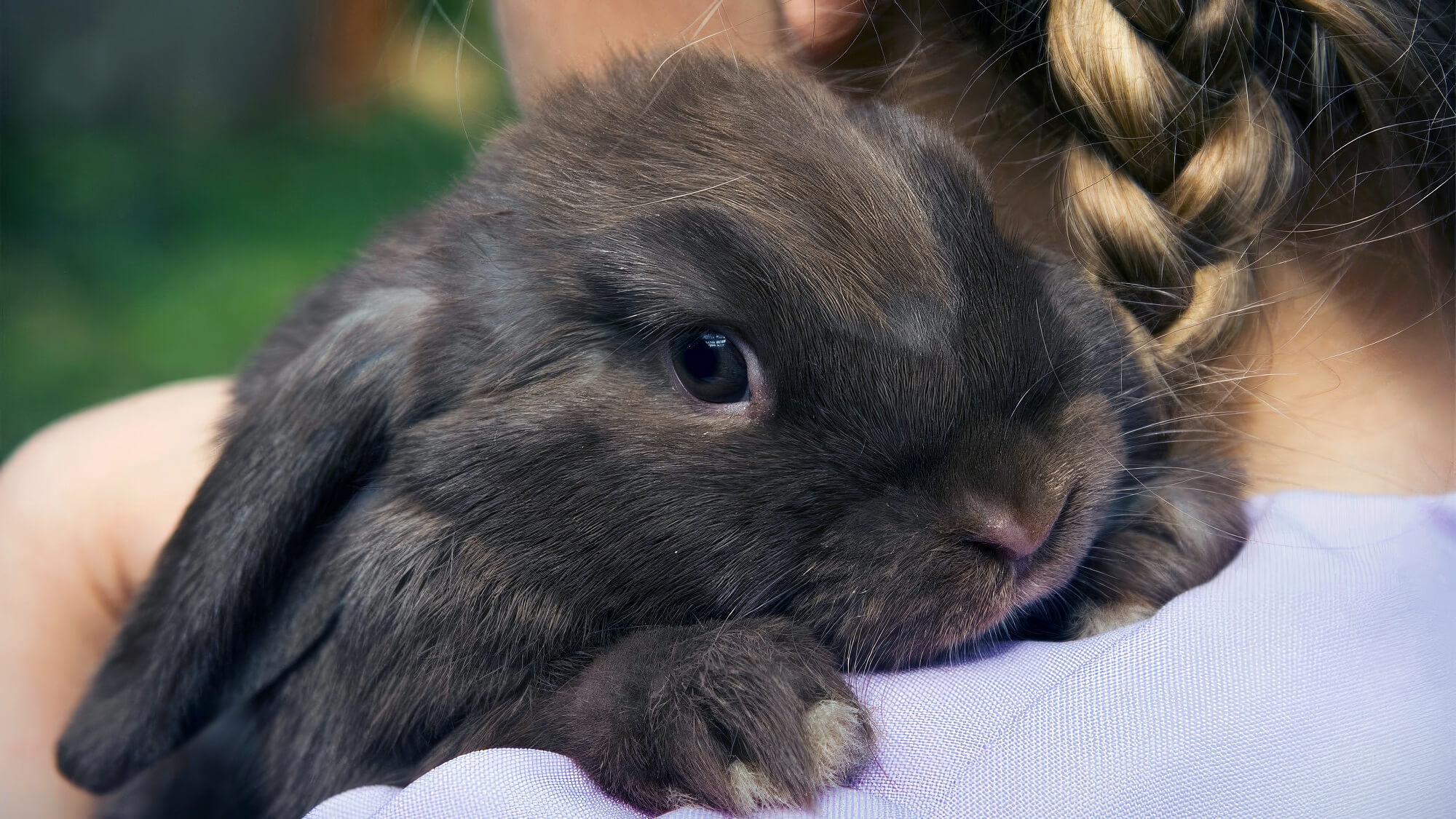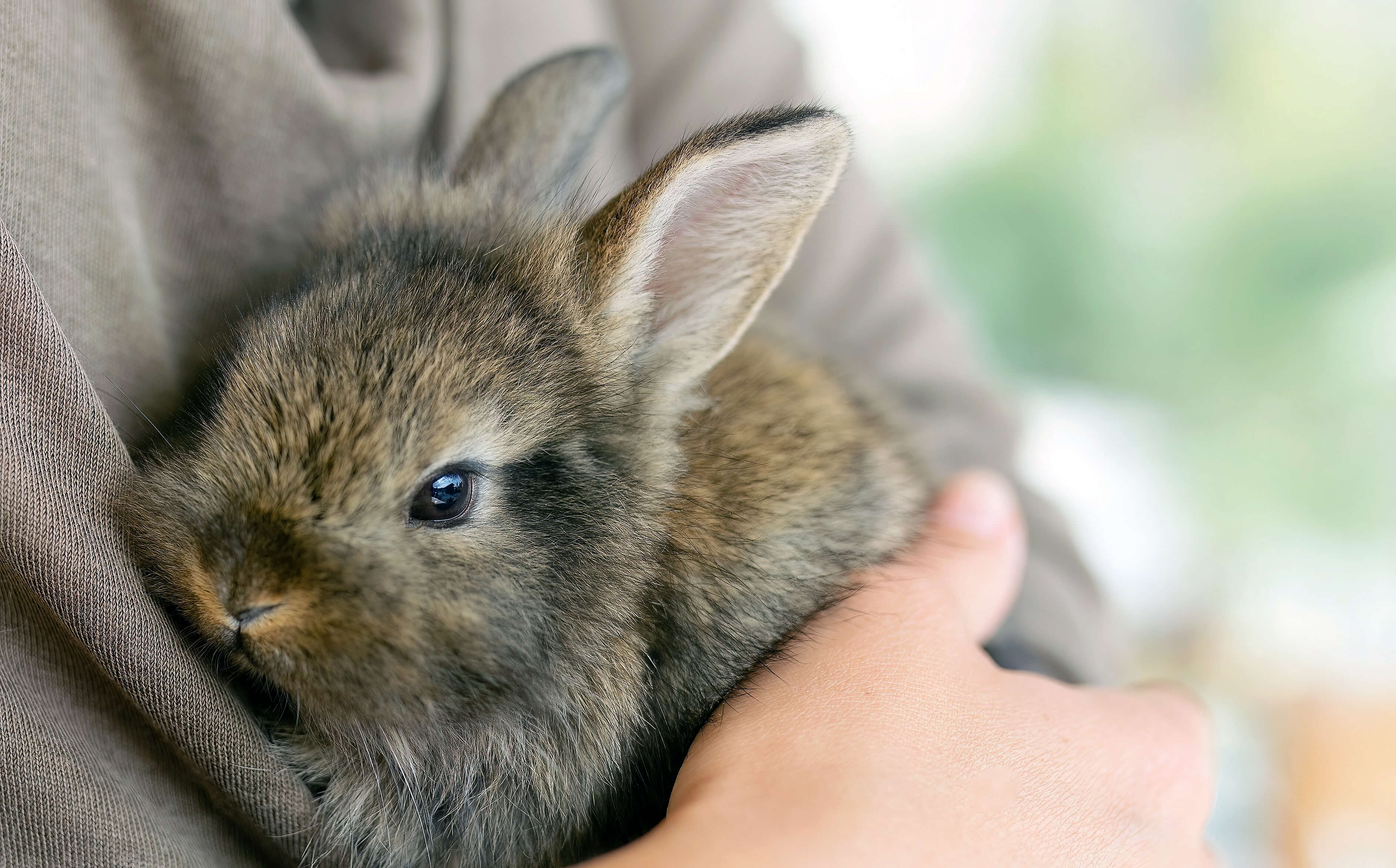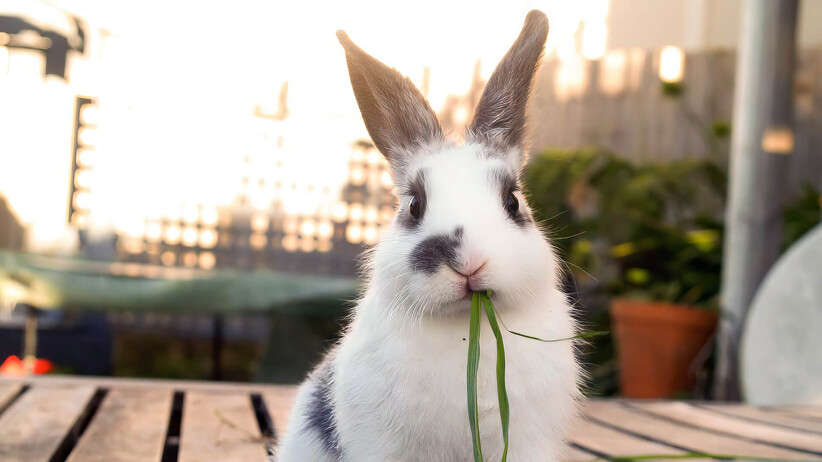Many new pet owners wonder if they should keep a single rabbit.
It’s occasionally looked down upon because the common assumption is that single rabbits live happily when they have friends of their own kind. Domestic and wild rabbits are social animals, and keeping family groups or bonded rabbits increases their quality of life.
However, you can have an equally happy rabbit by providing it with human company. This article will help you know if keeping a solitary rabbit is right for you and how you should take care of it.
When Is It Okay To Keep Only One Rabbit?
If your situation fits the criteria below, one rabbit will live happily with you.
1. It’s Your First Time Keeping Pet Rabbits
If you’ve never had rabbits, starting with just one is safer. This will help you learn to care for rabbits and follow a reliable routine before you’re ready for the bonding process.
Furthermore, encouraging two rabbits to become a bonded pair is a critical task, and experts recommend having some rabbit-keeping experience before you try it on your own. You’ll need to introduce the company of other rabbits, provide for both of them and watch out for fights and anxiety. Therefore, the bonding process should only be undertaken when you know how to care for just one.
2. You’re Almost Always Home
Suppose you work from home or have a schedule that allows you ample time for bonding and play. In this case, you can develop a strong relationship with your rabbit, and it will start enjoying human companionship. Your house rabbit will feel safe when you’re always around to provide food, scratches, enough exercise, or just exist in the same space together.
Several animal rescue workers can testify how much other rabbits enjoy being around a loving human. They’ve seen countless stories of depressed and hurt rabbits brought back to life by consistent attention, support, and care from a dedicated owner. Therefore, your rabbit will also enjoy your constant company.

3. You Want To Adopt A Rescue
Building off the last point, adopting a rescued rabbit is noble and thoughtful. These gentle animals are often put through terrible conditions and need a stable home and loving owners.
However, these rabbits also need gentle handling. They’re more likely not to want to bond. Also, their post-traumatic responses may lead to fights and injuries. It’s not their fault - that’s simply the result of how they have been treated. Therefore, rescue rabbits will need stable homes to acclimate themselves without the stress of an unfamiliar creature.
4. You Don’t Have The Resources Right Now
Sometimes, you just want a pet but need more space to keep two rabbits happy and active in your home. Also, two rabbits are expensive to maintain. You need double the food, toys, and medicine; they’ll likely get sick simultaneously.
Of course, some would state that you should only keep house rabbits if you can keep bonded pairs. However, there’s more nuance to the subject. As explained above, you can keep a rabbit safe on your own.
Additionally, the presence of other pets is a limiting factor. For example, you can keep two birds and fit a rabbit’s care and upkeep into your schedule. However, managing four pets simultaneously becomes more hectic, especially if you have to watch over the house rabbits and help them bond. Also, this situation is more detrimental to the rabbit’s mental health than you keeping only one.
Thus, limited resources but abundant love and care can be ideal for a single rabbit to thrive.
5. Your Rabbit Has Health Concerns
It’s best to go for something other than bonding rabbits or to get another rabbit if your current rabbit has an underlying health condition making things more difficult. If your single bunny has a contagious disease or fleas, it is best to prevent other rabbits from being in its vicinity. You can also use Origins Insect And Mite Liquidator Spray to eliminate fleas.
Also, if your bunny is susceptible to Gastrointestinal Stasis, you should avoid keeping two rabbits or more. Stress can significantly exaggerate the symptoms of GI stasis, and it may even lead to the poor creature’s death.
Moving on, your rabbit’s age is also essential to its health. Generally, most rabbits six years or older are slow and prone to diseases. Thus, they need care and singular attention at all times. If you have an aging rabbit, you should let it live out its days in peace, with just you for company.
When Should You Keep More Than One Rabbit?
Keeping at least two rabbits is the kindest option in the scenarios below.
1. You Have A Busy Schedule
It’s understandable to be busy most of the day or have a job requiring you to leave your home for prolonged periods. However, if this is the case, you should consider keeping two or more house rabbits.
Leaving a rabbit alone in your living space or not paying enough attention to it will be detrimental to the animal, both physically and mentally. It’ll grow sad and sick without a rabbit friend. What’s more, the lack of enrichment can make your rabbit look for dangerous playthings and food or wander into unsafe parts of your home.
On the other hand, two or more rabbits can keep each other busy and happy in your absence. They only need food and safety; you can stick to your busy schedule.

2. Your Rabbit Seems Depressed
Suppose you planned to keep and devote much attention to a single rabbit. However, it still feels depressed without rabbit company from its species; this is rare but not unheard of. Like people, individual rabbits have different personalities, and you might have a very sensitive bunny prone to loneliness.
If you think your bunny has depression, below are some behavioural changes to help you confirm it.
- Your rabbit is quiet and in the same place all day.
- The rabbit’s nose isn’t twitching.
- It is chewing on its enclosure bars.
- Your rabbit is displaying uncharacteristic grooming habits like fur pulling.
- It is pacing around in circles for long durations.
- The rabbit isn’t very eager to eat.
If you notice these symptoms in your rabbit, it’s suffering from a depressive episode, and you should consider getting fellow rabbits or at least a second rabbit for it.
3. You Found Bonded Rabbits
Sometimes, the stars align, and you find the rare rabbits lucky enough to have bonded. These rabbits are very close friends and have gone through a lot together. Separating them now would be cruel and detrimental to their health.
Thus, if you’ve found the cutest little rescue bunny and want to take it home with you, always enquire about its friends and take those rabbits too. If you don’t have the resources to care for a second rabbit, consider looking for a different rescue altogether.
How To Care For A Solitary Rabbit
After analysing your capabilities and the above points, you might keep only one pet rabbit. Here are some tips to help you take the best care of it.
Tip 1:
Set up a large, comfortable rabbit enclosure where the bunny will spend most of its life.
Tip 2:
Rabbit-proof the rest of your house by fixing sponges on sharp corners, keeping all chemicals out of reach, and insulating all electric wires.
Tip 3:
Feed your rabbit green vegetables, Orchard Grass, Small Animal Hay, and pellets. If you need clarification about the amounts, you can consult a veterinarian.
Tip 4:
Always keep a bowl of clean and fresh water out for your rabbit. If your bunny knocks it over too much, don’t keep it out of reach, but consider sturdier options like the Lexi & Me Glass Water Bottle.

Tip 5:
Groom your bunny with your fingers or a soft brush, and let it sit on your lap sometimes. It should have an unlimited supply of cuddles.
Tip 6:
Figure out the kinds of play your rabbit likes and find ways to participate.
Tip 7:
If the rabbit’s nails get too long, carefully clip them with a specially-designed nail clipper. Employ professional help for maximum safety.
Tip 8:
Buy toys and play castles so the bunny isn’t bored. You can consider the Rosewood Seagrass Tunnel for your rabbit.
Tip 9:
Get regular health checkups for your rabbit and decide on neutering.
Taking Care of Your Pet Rabbit
If you care for one rabbit, you’ll keep each other happy and healthy for years. However, learning to care for a solitary bunny has ups and downs, and you should be adequately prepared before you bring small animals home.
You can remember the points above to know what’s best for you and your rabbit, but always trust a veterinarian’s opinion. They’re experienced at working with these fragile animals and have your best interests at heart.
Now, you’re free to look for your new rabbit, whether a newborn or a shelter rescue that needs your compassion.






